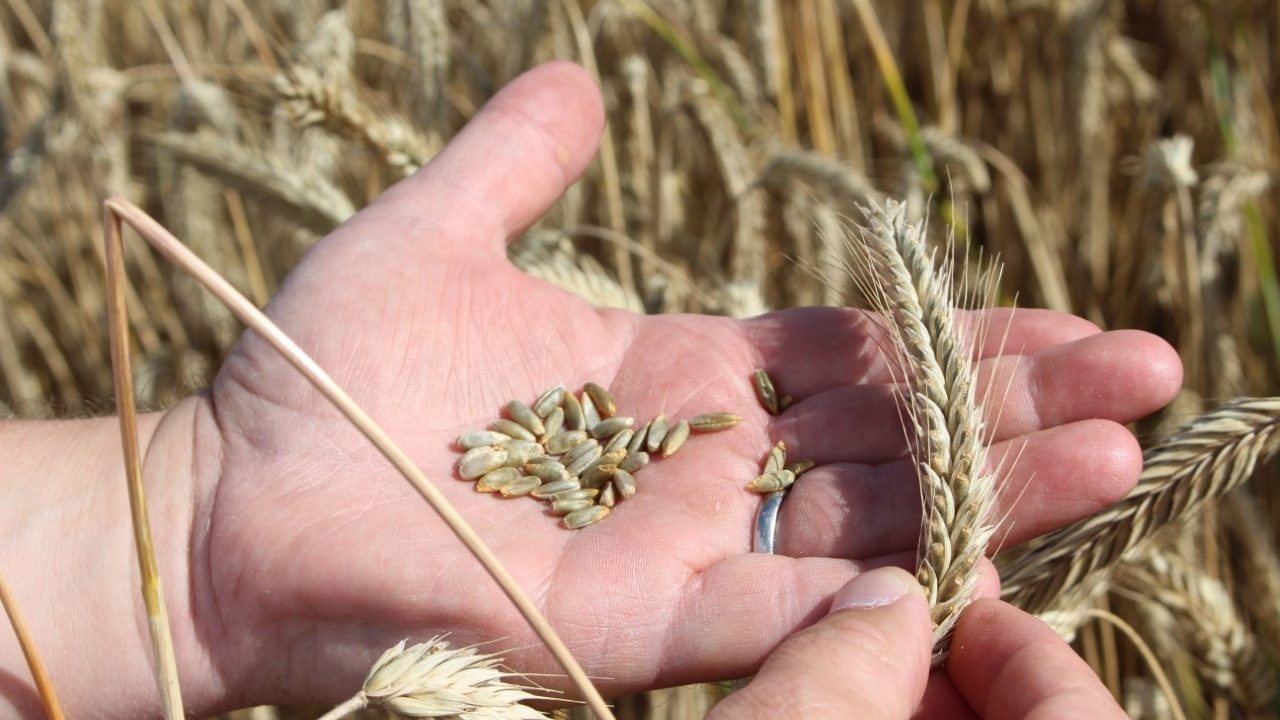Farmers attending the recent Teagasc spring tillage seminar in Co. Donegal were briefed on the benefits of growing hybrid rye as an alternative winter cereal.
Seedtech’s Tim O’Donovan spoke at the event. He confirmed that the area of rye grown in Ireland has increased from 55ha in 2016 up to an estimated 3,000ha in 2023.
September-sown crops have the potential to deliver yield of up to 4t/ac.
Hybrid rye
According to O’Donovan, rye is a very attractive winter cereal option in areas where the weather can prove challenging, both at harvest and time of planting.

He also confirmed to Agriland that rye is very tolerant of both take-all and Barley Yellow Dwarf Virus (BYDV).
“It’s not resistant to take-all,” he said. “But on a scale of one to 10, its tolerance of the disease comes in at around nine.
“Rye is also very resistant to sprouting in the ears. This is why it may be suited to areas like Donegal, where weather conditions can be so unpredictable at those critically important times of the year.”
O’Donovan pointed out that rye should not be regarded as a break crop.
“But it can be sown out after any other cereal option or oilseed rape,” he said.
“Where crop rotations are concerned, the only no-no would be to follow rye with rye.”
The Seedtech representative has closely monitored hybrid rye crops grown in Ireland for the last couple of years.
“Yields of up to 4t/ac have been achieved by Irish growers as a matter of norm,” he further explained.
Disease
Ergot is a fungus that has been historically associated with rye and less commonly on other cereals such as wheat.
However, O’Donovan indicated that the KWS hybrid varieties now available from Seedtech are virtually resistant to ergot attacks.
“Hybrid rye crops are not affected by septoria or ramularia, which is very beneficial in a wet-weather climate like Ireland and with one eye on the impending Sustainable Use Regulation looking to reduce pesticides (including fungicides) by 50%,” he stated.
Farmers wanting to grow rye in 2023/2024 are being urged to find a market for the harvested grain prior to planting.
“It’s a case of chatting to the grain merchants and the feed compounders,” O’Donovan said.
“Rye can be included in all ruminant rations. However, it is particularly suited to pig diets.
“Rye can also be used directly in a number of human food options e.g., bread made from rye flour is fast growing in popularity.
“In addition, a number of Irish distillers are currently developing whiskeys, made from rye grains.”
